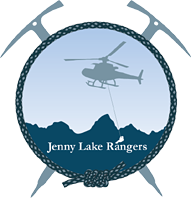skip to main |
skip to sidebar
Leave No Trace - General Backcountry
PLAN AHEAD AND PREPARE
- Know the regulations. Special regulations apply in Grand Teton National Park.
- Prepare for extreme weather, hazards, and emergencies.
- Avoid times of high use. Minimize impacts to the resource by avoiding crowded times of the day, week, or year.
- Visit in small groups when possible. Consider splitting larger groups into smaller groups.
- Repackage food to minimize waste.
- Use a map, compass and GPS. Eliminate the use of rock cairns or flagging by knowing how to navigate the wilderness.
TRAVEL AND CAMP ON DURABLE SURFACES
- Established trails and campsites, rock, gravel, dry grasses and snow are durable surfaces.
- Camp at least 200 feet from lakes and streams to protect riparian areas.
- Do not create campsites. Good campsites are found, not made. Altering a site is not acceptable or necessary.
DISPOSE OF WASTE PROPERLY
- Pack it in, pack it out. Inspect your campsite and rest areas for trash or spilled foods. Pack out all trash, leftover food, and litter.
- Pack out solid human waste whenever possible. Otherwise, bring a trowel and bury solid human waste
in cat-holes dug 6 to 8 inches deep at least 200'
away from trails, water sources and the camping zone. Cover and disguise the cat-hole when finished.
- Always pack out toilet paper and hygiene products.
- Keep water in the Tetons clean. To wash yourself or your dishes, carry water 200 feet away from streams or lakes and use small amounts of biodegradable soap. Scatter strained dishwater. Do not wash dishes in streams or use soaps or other
detergents in natural water sources. Pack out all food scraps.
LEAVE WHAT YOU FIND
- Preserve the past. Examine, but do not touch, cultural or historic structures and artifacts.
- Leave rocks, plants and other natural objects as you find them.
- Avoid introducing or transporting non-native species. Inspect clothing and equipment before and after recreating to look for unwanted flower seeds or aquatic life trying to hitch a ride. Properly clean boats and fishing equipment after use.
- No Construction Zone. Do not build structures, furniture, or dig trenches.
MINIMIZE CAMPFIRE IMPACTS
- Fires are NOT permitted in the backcountry of Grand Teton National Park, with the exception of designated lakeshore
sites.
- Use alternatives. Use a lightweight stove for cooking and enjoy a candle lantern for light.
- Use established metal fire grates at lakeshore campsites. Keep fires small. Only use sticks from the ground that can be broken by hand. Burn all wood and coals to ash, put out campfires completely.
RESPECT WILDLIFE
- Observe wildlife from a distance. Do not harass or approach animals.
- Store food properly. Protect wildlife, your food, and your equipment by storing food properly. All food, garbage,
toiletries, and any other odorous item that may attract bears or other wildlife
MUST be stored in a bear-resistant food storage canister or box when not in
immediate use, day or night. Bears, marmots, ravens, and other scavengers
frequent camp areas and zones and can cause significant damage to tents, sleeping bags,
packs, and other camping equipment if food and garbage is not properly stored.
- Never feed animals. Feeding wildlife damages their health, alters natural behaviors, and exposes them to predators and other dangers. Bears may be destroyed or removed from their habitats after they have become accustomed to human food.
- Leave your pets at home.
Pets are not allowed on trails or in the backcountry of Grand Teton National Park. They may become lost or
prey for wildlife, they can also adversely impact park resources. If you need to
bring your pet to the park, consider hosting it at a kennel in Jackson during
your outing in the mountains.
- Be sensitive. Avoid wildlife during sensitive times: mating, nesting, raising young, or winter.
BE CONSIDERATE OF OTHER VISITORS
- Respect other visitors and protect the quality of their experience.
- Be courteous. Yield to other users on the trail.
- Step downhill for horses. Step to the downhill side of the trail when encountering pack stock.
- Get away from it all. Take breaks and camp away from trails and other visitors.
- Let nature's sounds prevail! Avoid loud voices and noises.
